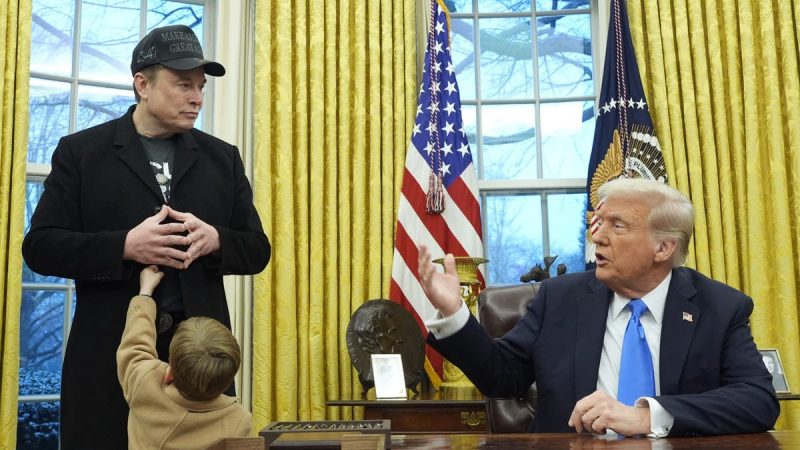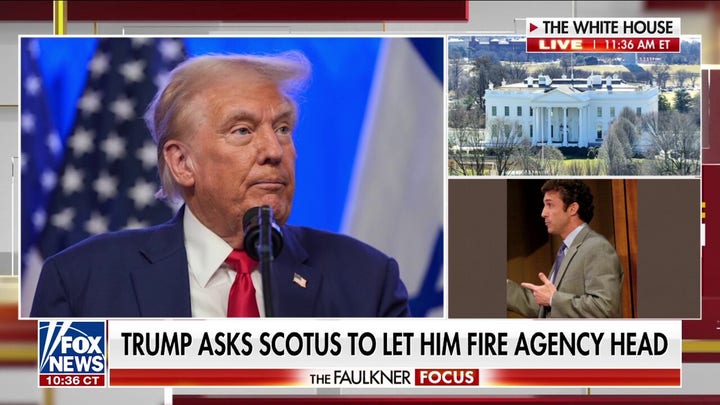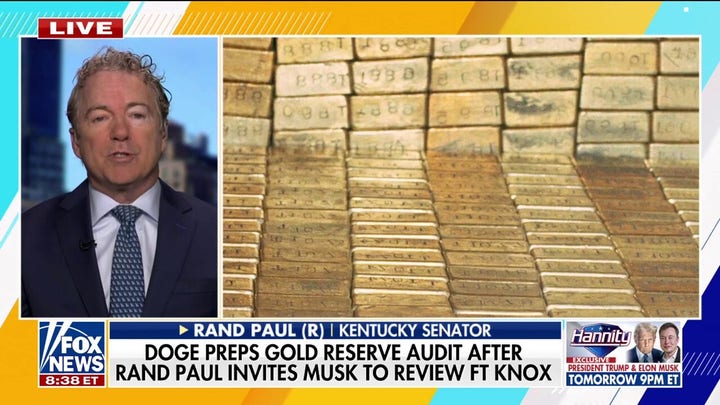
As someone who fought in the bureaucratic trench wars of the first Trump administration, I was a surprised as anyone by the stunning rapidity of DOGE leader Elon Musk’s blitzkrieg into the heart of the federal bureaucracy. Within a matter of days, President Donald Trump seized control of a federal bureaucracy that he had never brought fully under control during his first term.
A slower, more deliberate approach could have averted lawsuits and reduced collateral damage to the parts of the bureaucracy worth keeping. Yet the experiences of the first Trump administration gave Trump and DOGE good reason to believe that such an approach would bog down.
One of the chief lessons Trump learned from his first administration was that senior career bureaucrats, left to their own devices, were willing and able to sabotage him. The most disturbing insubordination was the Crossfire Hurricane scandal and the ensuing Mueller probe or investigation into Russian collusion, the crimes of which would today be considered comparable to Watergate if the mainstream media gave them due attention.
Prior to Trump’s election in 2016, senior FBI official Peter Strzok and FBI Director James Comey authorized spying on Trump campaign officials, some of which they justified through inaccurate FISA applications and bogus information in the Steele dossier.
Once Trump was elected, FBI bureaucrats like Kevin Clinesmith and Brian Auten and Justice Department lawyers like Bruce Ohr and Dana Boente kept the espionage going through additional acts of duplicity.
The weaponization of the government against Trump and his supporters extended into federal agencies. The Defense Department abused the security clearance system to oust Adam Lovinger after he identified the misuse of government funds to entrap Trump associates.
At USAID, career bureaucrats employed similar tactics against me because I had reported several of them for corruption. The agency’s security director, ethics attorney and inspector general — the people who were supposed to safeguard ethics — took part in the moral turpitude.
During his first term, Trump also learned that federal bureaucrats were intent on slow rolling or completely obstructing his policies. Dr. Anthony Fauci, former director of the National Institute of Allergy and Infectious Diseases, surreptitiously orchestrated a March 2020 report dismissing the Wuhan lab leak theory, which he then used to undercut White House efforts to hold the Chinese government accountable for the deadly catastrophe.
Career lawyers at the Department of Justice’s Civil Rights division impaired the division’s investigations and prosecutions by refusing to work on matters such as affirmative action, religious liberty and biological males in women’s sports. USAID bureaucrats deliberately concealed the agency’s humanitarian programs in Syria because they feared Trump would terminate the programs if he learned about them.
Prior to serving in the first Trump administration and learning about Crossfire Hurricane, I would not have believed that senior career bureaucrats would systematically subvert the White House and its policies. While there might be a bad apple here or there, it seemed implausible that substantial numbers of senior officials would have both the audacity and the authority to act.
Experience led me, along with Trump and many other Republicans, to conclude that subversion was widespread, and hence subversives needed to be removed from the federal bureaucracies henceforth. Late January, perhaps not coincidentally, USAID became the first agency where large numbers of senior bureaucrats were sidelined for resisting White House policies.
While those unfamiliar with the nation’s past may depict the Trump offensive as a radical break with tradition, fierce resistance to bureaucracy dates back to the nation’s founding. In 1776, Americans voiced a deep suspicion of government bureaucrats and cited it as a reason for breaking from Britain. The Declaration of Independence asserted that Britain had ‘erected a multitude of New Offices, and sent hither swarms of Officers to harass our people, and eat out their substance.’
Presidents of both right and left have at various times belittled the federal bureaucracy and demanded its reduction in size and power. President Andrew Jackson restricted government employment to four years because with lengthier service men were ‘apt to acquire a habit of looking with indifference upon the public interests.’ President Bill Clinton cut the federal civilian work force by 427,000 during his two terms in office.
While the federal bureaucracy is bloated and should be shrunk, it cannot be eliminated. As the founders of this nation recognized, sinful human nature necessitates the existence of a government for certain purposes, such as enforcing the law, protecting against foreign enemies, and regulating commerce.
And as long as we have government, we need bureaucrats. Some bureaucrats need to be retained from one administration to the next to ensure that some people know how to keep the machines running. Congress should act, however, to make the firing of underperforming or insubordinate employees much easier than it is today.
The experience of the first Trump administration also showed that reining in the bureaucracy requires improving not only in bureaucrats but also the presidential appointees who serve in the agencies. By law, career bureaucrats are required to follow the directions of political appointees, and most of the ones I encountered did so.
Thus, political appointees who are competent, ethical and committed to the administration’s principles can steer the ship in the right direction once the subversive bureaucrats and excess baggage have been offloaded.
One reason why bureaucrats got away with so much during Trump’s first term was that too many political appointees lacked the desire or the courage to confront them. The first Trump administration came to power without a reservoir of such people from which to draw.
For this reason, Trump and those around him spent the last several years screening individuals for these jobs. Some of his picks have provoked controversy, even among his allies, but thus far the new team appears capable of taming a bureaucracy that was never brought to heel the last time around.

